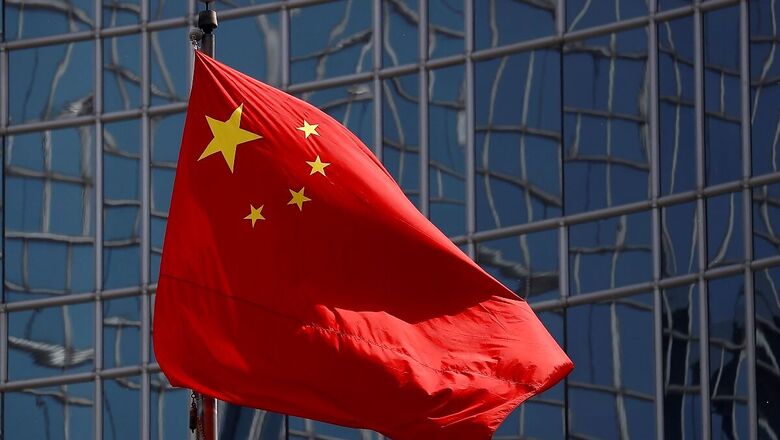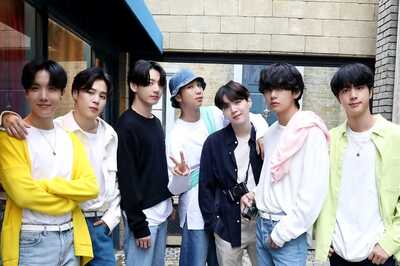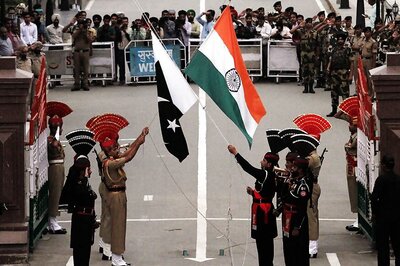
views
M Varma Beijing: Chinese President Xi Jinping and his Russian counterpart Vladimir Putin agreed on Monday to work together as they extended a 20-year-old bilateral agreement on friendship and cooperation to forge closer ties, amid the US and the EU push against both the countries over human rights and a host of other issues. The two leaders issued a joint statement after their talks via video link, officially announcing the extension of the China-Russia Treaty of Good-Neighbourliness and Friendly Cooperation (TGNFC) signed between the two countries in 2001, state-run Xinhua news agency reported.
They held talks amid growing anxiety in Beijing, especially after the June 16 meeting between Putin and US President Joe Biden that Washington is attempting to wean away Moscow out of its close ties with Beijing. Also Putin-Xi talks took place ahead of the July 1 centenary celebrations of the ruling Communist Party of China (CPC), which had a roller coaster relations with the erstwhile Soviet Communist Party before the disintegration of the Soviet Union.
Xi told Putin that China and Russia have injected positive energy into the international community through their close cooperation, as the world is entering a period of turbulence and change and human development is confronted with multiple crises. The two countries have set a good example for a new type of international relations, Xi said.
The TGNFC aligns with both countries' fundamental interests, echoes the themes of the times for peace and development, and is a vivid example of building a new type of international relations and community with a shared future for mankind, Xi, also General Secretary of the CPC, said. On his part, Putin said the coordination between Russia and China plays a stabilizing role in global affairs amid the growing political turbulence and increasing conflict potential, TASS news agency reported.
"Amid the increasing geopolitical turbulence, the breakdown of arms control agreements, and the increasing conflict potential in various corners of the world, the Russian-Chinese coordination plays a stabilizing role in the global affairs," Putin underscored. Putin said that the Russian-Chinese Treaty of Good-Neighborliness, Friendship, and Cooperation largely determined the current condition of bilateral relations.
He also stressed it is important that Russia and China have no territorial claims against each other and that this recognition rests upon a firm legal basis. "It is important that it stated the absence of mutual territorial claims and the two countries' determination to turn the common border into a belt of eternal peace and friendship. We have done a great deal for this, including the work on the border. We have worked on this for years. We and our teams have achieved the desired result, suitable for China and for Russia," he said.
The latest meeting was the second interaction between the two top leaders within six weeks after they witnessed the ground-breaking ceremony of a bilateral nuclear energy cooperation project on May 19 under which Russia is building two powerful nuclear reactors for China. The two countries also recently released a road map to build lunar research stations either on the surface of the moon, in orbit or both. Russia has reportedly extended the technological assistance for China's recent successful launch of its space station.
The frequent interactions between top leaders of the two countries show deepening mutual trust and delivered a heavy blow to Western attempts to split China-Russia friendship, Chinese analysts said. Xi, 68, who has emerged as the most powerful Chinese leader in the recent past much on the similar status of the CPC founder Mao Zedong, has carefully cultivated close relationship with Putin and promoted closer strategic partnership between China-Russia since he took over power in 2012.
Chinese observers see close ties between Moscow and Beijing as a logical outcome of the growing hostility faced by both the countries from the US, the EU and Western countries over a host of issues including scant regard for human rights. However, the lengthy meeting between Biden and Putin in Geneva raised hackles in Beijing, so much so that Russian Ambassador to China Andrey Denisov publically assured Beijing ahead of the summit that Moscow won't alienate Beijing over the US.
Reflecting China's concerns, the Global Times quoted analysts as saying that while it would be hard to break the ice in US-Russia relations, the US may stabilise relations and ease tensions with Russia so as to concentrate on dealing with China. Playing down the concerns, Denisov told the daily that the idea that Russia would alienate China over the possibility of the US temporarily easing tensions with Moscow is "very short-sighted." "Russia is smarter than Americans think," he said.
He stressed that Russia-China relations will not change no matter what attitude the US takes toward Russia. The timing of the Xi-Putin online meeting shows that the two leaders attach great importance to the bilateral ties and high-level strategic partnership, Yang Jin, an associate research fellow at the Institute of Russian, Eastern European and Central Asian Studies, told the daily. "As Russia's top leader, Putin is sending sincere greetings to the leader of the CPC, which signals China-Russia ties would be deepened without being affected by other great power ties," Yang said.
Given the current complicated international situation after the EU recently extended economic sanctions against Russia, the exchange of views between the Chinese and Russian top leaders on global issues will help maintain global stability and peace, Wang Xianju, deputy director and research fellow at the Renmin University of China-Russia St. Petersburg State University Russian Research Center, told the Global Times.
.
Read all the Latest News, Breaking News and Coronavirus News here.




















Comments
0 comment